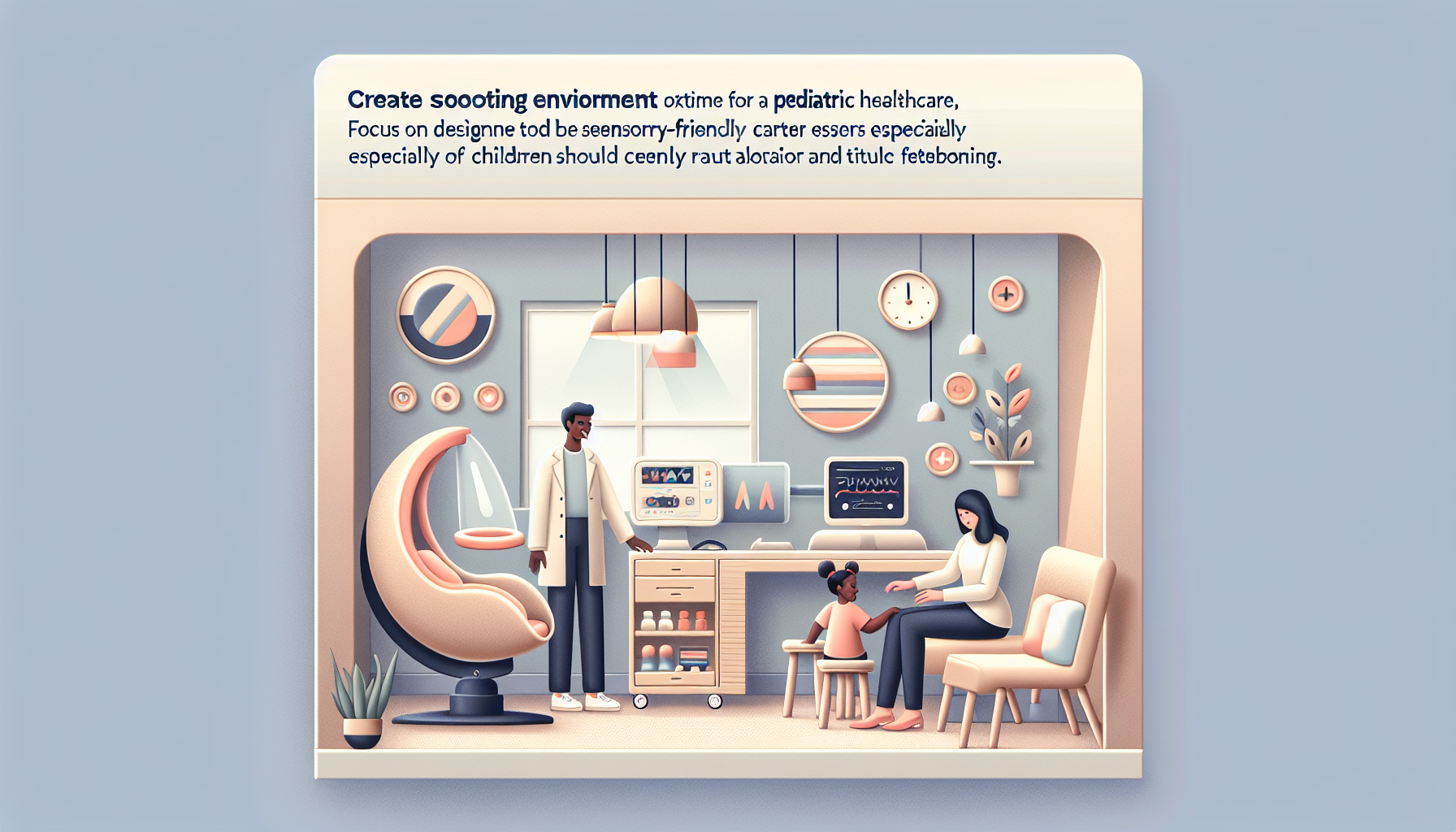The foundational years of a child’s life are critical for their overall development, and this includes their sensory health. Sensory health encompasses a child’s ability to process and respond to the information that comes through their senses. Regular sensory health screening in pediatric primary care is essential to identify and address any sensory processing issues early on, ensuring that children can reach their full developmental potential.
The Significance of Sensory Health in Early Development
Sensory processing is the manner in which the nervous system receives messages from the senses and turns them into appropriate motor and behavioral responses. Whether a child is trying to concentrate in school, play with friends, or just get dressed, how they interpret sensory information plays a key role in their actions and abilities.
Children with sensory processing disorders may experience challenges in their everyday interactions with the world, which can affect their academic performance, social interactions, and even their self-esteem. Thus, integrating sensory health screenings into routine pediatric care is vital for the early detection and intervention of potential sensory integration issues.
Screening and Early Intervention
Pediatric primary care providers are in a unique position to identify children at risk of sensory processing disorders. Screening can involve questionnaires filled out by parents, observations by healthcare professionals, and standardized tools designed to detect sensory integration issues. Early intervention is crucial because it can provide children with the strategies they need to navigate their sensory experiences effectively, thereby supporting their development and well-being.
The Role of Sensory Health in Related Areas
Sensory health is deeply intertwined with various aspects of a child’s development. For instance, there is a significant connection between sensory processing abilities and brain health, as sensory experiences can shape the developing neural pathways in a child’s brain.
Moreover, sensory health impacts areas such as emotional regulation and social interaction. For example, children with sensory sensitivities might find common social environments overwhelming, which can lead to social withdrawal or anxiety. This underscores the importance of fostering sensory-friendly environments and experiences that cater to the needs of these children.
Integrating Sensory Health Practices into Care
Incorporating sensory health practices into pediatric care requires a multi-disciplinary approach. Healthcare providers can work closely with occupational therapists who specialize in sensory integration therapy. This form of therapy can help children develop the ability to process sensory information more efficiently, which can have a positive impact on their daily activities and interactions.
Additionally, providers can guide families in creating sensory-friendly spaces at home, which can serve as a safe haven for children to retreat to when they feel overwhelmed by sensory stimuli. Such environments can help reduce stress and promote a sense of security for children with sensory processing challenges.
Collaborating with Schools and Community Resources
Pediatric healthcare providers can also collaborate with schools to ensure that children with sensory processing issues receive the support they need in educational settings. This might involve advocating for individualized education programs (IEPs) or 504 plans that include accommodations tailored to the child’s sensory needs.
Furthermore, connecting families with community resources, such as sensory-friendly public transportation options and inclusive playgrounds, can help children with sensory sensitivities engage more fully with their community in a comfortable and accepting manner.
External Resources for Further Support
For those looking for additional resources on sensory health screening and interventions, there are niche resources that offer valuable insights. Websites like the STAR Institute for Sensory Processing Disorder provide comprehensive information on sensory processing issues and strategies for support. The Sensory Processing Disorder Foundation is another specialized resource offering research and education on sensory processing.
To gain a deeper understanding of the impact of sensory issues on learning, Understood.org offers articles and tools to support children with learning and attention issues, including those with sensory processing challenges. The Autism Research Institute also provides resources specifically tailored to sensory health in the context of autism spectrum disorders.
Conclusion
Sensory health screening in pediatric primary care is a crucial component of ensuring a child’s holistic development. By identifying sensory processing issues early, healthcare providers can work with families to create supportive environments and interventions that enable children to navigate their sensory experiences successfully. Collaboration with educational and community resources further ensures that children with sensory sensitivities receive the comprehensive support they need to thrive in all aspects of their lives.
By prioritizing sensory health in pediatric care, we can make a significant difference in the lives of many children, helping them to build a strong foundation for their future growth and development.



